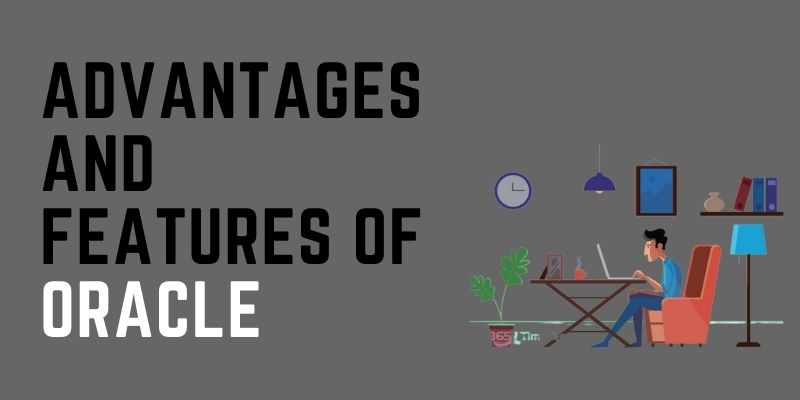Oracle can be described as a relational database management system created by Oracle Corporation. Oracle’s RDBMS is able to handle any data model and comes From a range of different editions, such as Standard Edition, Enterprise Edition, Express Edition, and Personal Edition, from which users can choose the system for their database which best meets their requirements. In comparison to other databases available, Oracle systems are scalable, secure, and have exceptional performance capabilities. If you want to learn more about Oracle, then join Oracle Training in Chennai with certification and placement support for your career enhancement.
What is Oracle?
The database can also be known as Oracle. It’s a relational database system that includes a variety of models that are designed to be used for grid computing for enterprises and data warehouses. It’s one of the most popular options for businesses seeking cost-effective applications and solutions for managing their data. It is compatible with SQL as a query language for interacting with databases.
Features of Oracle:
Scalability and Performance:
Oracle databases can be scaled by consumption thanks to features such as real-time clustering, and portability. It is crucial to regulate the data consistency and concurrency of the multiuser database that Oracle is able to do by using.
Availability:
A high level of data availability is essential in real-time applications. High-speed computing systems are created to ensure that data is available throughout the day. Data is accessible even during planned and unanticipated outages , as well as malfunctions.
Backup and Recovery:
Its design gives you the complete ability to recover data for virtually any kind of failure. To ensure high availability, databases need to be restored quickly in the case of a disaster. While the affected data is being restored, however, there are other parts of it that are not affected.
Security:
Data security is always a top priority. Oracle offers access and utilizes control tools. The ability to authorize and modify user activity can stop access to users that are not authorized and allow users to have distinct access.
Join the Oracle Course in Chennai with certification and placement support for your career enhancement.
Importance of Oracle:
This has been one of the most seasoned database management companies around the globe. It has always emphasized business needs and has embraced emerging technological trends. This is why the products it sells are regularly upgraded with the latest features. For instance, the most current Oracle database versions, 19C and 19C, are accessible in the Oracle Cloud. Oracle It allows users to choose from a wide range of database versions to meet their needs and requirements. It also provides the most cost-effective solution.
Advantages of Oracle database:
We’ve previously talked about the database’s capabilities. Due to these features, Oracle is superior to its rivals. In this article, we’ll look at the advantages of Oracle.
- Performance:
It outlines methods and philosophies to achieve high performance. It is possible to optimize the time it takes to execute queries and, consequently, application performance through implementing optimization in its database. This allows us to modify and retrieve data more quickly.
- Multiple Database:
The database allows multiple instances of a database to be managed on a single server. Oracle uses the Instance Caging method to manage the CPU usage on servers that host databases. The management of database resources and instance caging are used together to manage services across multiple instances.
- Editions:
As mentioned previously, Oracle’s different versions permit users to buy versions that are best suited to the needs of their applications. If their requirements evolve in the near future, they will be able to upgrade their edition. If you’re interested in learning Oracle and performing some work-based tasks, it is possible to use the download option and then install the no-cost Express Edition database.
- Clusters:
It utilizes Real Application Clusters to deliver the highest availability of data. RAC databases offer these advantages over standard databases:
- The database’s scalability across several instances.
- Load balancer
- Redundancy of data and availability
- flexible to expand processing capacity.
- Refusal to recover:
RMAN (Recovery Manager) is an Oracle database function that allows you to retrieve or restore database data during interruptions. It also allows online backups and continuous archiving. It also allows users to use SQL*Plus to recover, also known as user-managed restoration. Inside the database, you can find an export utility that can be used to add user-managed backups.
Attention Reader! If you want to learn Oracle from your remote location, then join the Oracle Online Course with certification and placement support for your career enhancement.
Conclusion:
In a nutshell, Oracle is a strong database server administration program that can satisfy the needs of both small- and enterprise applications. It is widely used because it includes virtually all the functions required to run modern applications. If you are looking to learn more about Oracle and its features, you should join the FITA Academy as it will provide you with the opportunity to learn with real-time working experts and certifications as well as assistance with placement for your professional development.
Also read this blog, How to Become an Oracle Developer to become an Expert Oracle Developer.

